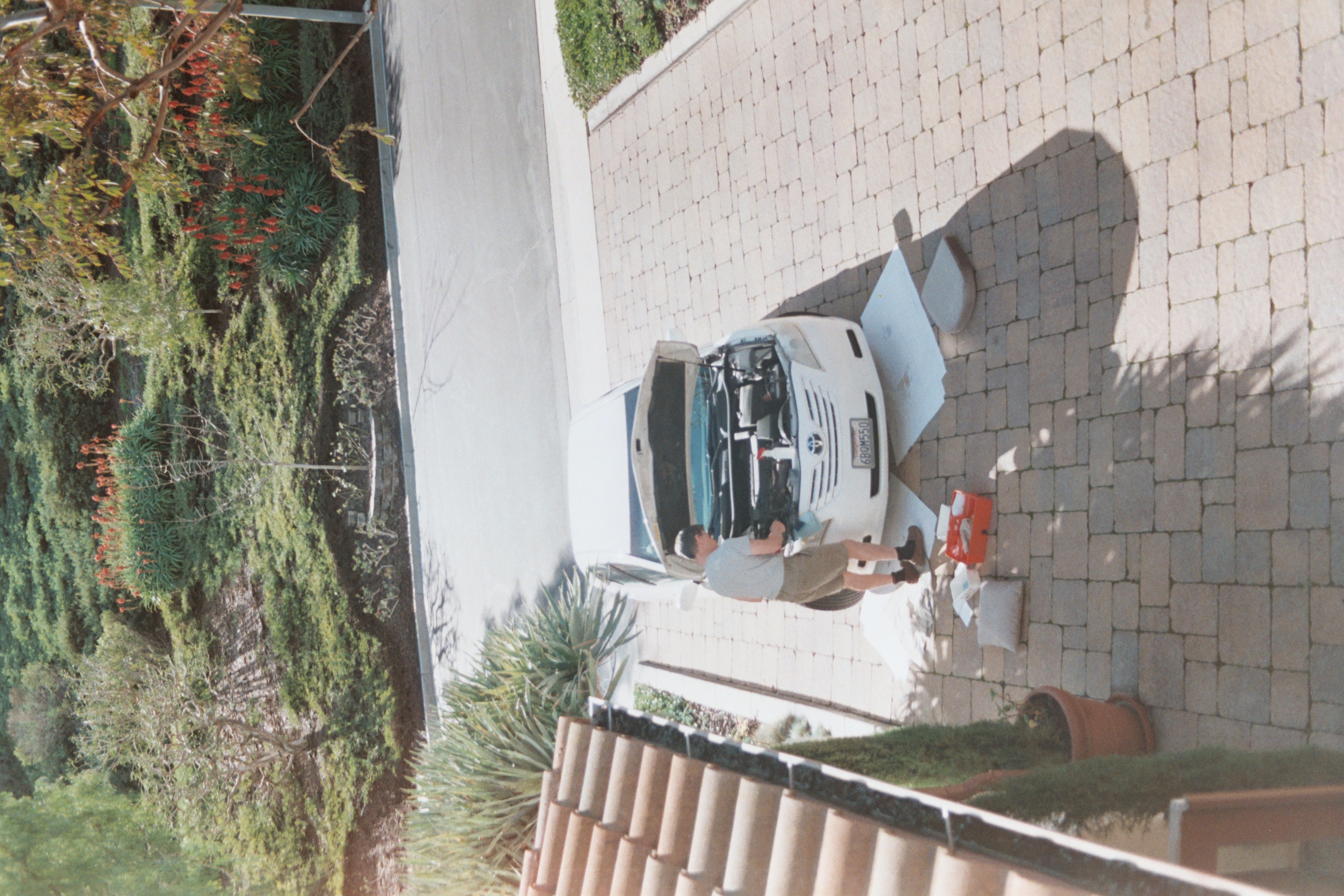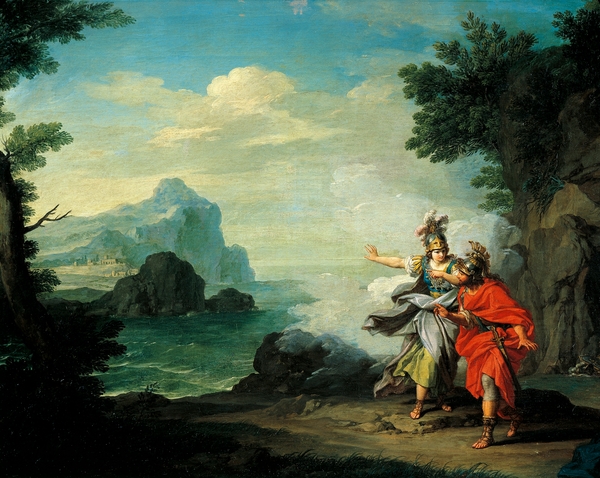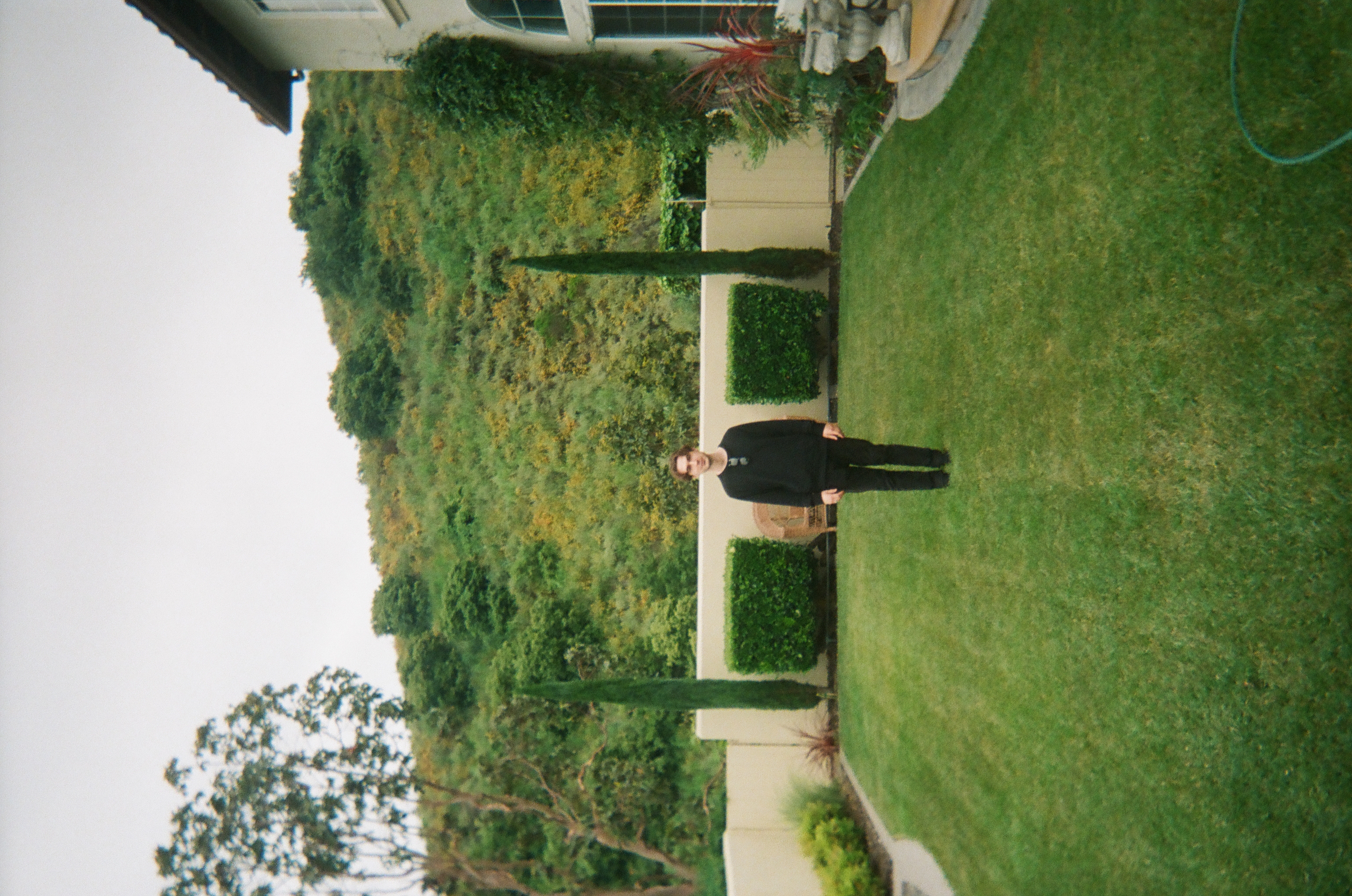Nostos, Or On Going Home

Then & Now
It’s funny how as we grow older, the term home begins to resemble less the house we spent our childhoods in, and more the time in which those years unfolded. Though we can draw a straight line between now and then, it somehow always feels unreachably far. Distant. Lost. Tucked away forever behind some corner in our memories.I was thinking this as I walked the lighted streets of Woodley Park, Washington this last week, a neighborhood I’ve come to call home for the last month and a half. Walled-in on all sides by beautiful houses, I was reminded of similar walks taken in my own childhood neighborhood years before––a place that goes cold-blue in winter and yet has flowers on the trees all year round.
Out wandering there on one of those evenings this last Christmas, I wondered if my entire life’s travels up until that point hadn’t been an attempt to find that same deep blue, winter calm, only some place else.
Even as I had the thought, I couldn’t explain why the place had to be elsewhere. Why here wasn’t perfectly good enough. Why I couldn’t go home again and this time stay.
The Long Journey Back
In Ancient Greece there is the idea of Nostos, or the epic story of the hero returning home after a long period away. The most famous of these is the
Odyssey, which after the decade-long set-up of the Trojan War, chronicles Odysseus’s long journey back to Ithaca. It’s a story that’s touched us culturally like few others––the proof of this being baked into its very composition: Its believed by historians today that instead of writing the poem down as was originally thought, Homer likedly composed the Odyssey as a series of verses (12,110 total) that were then sung and passed down through verbal tradition over the course of generations.
That in those intervening centuries it wasn’t snuffed out by war or famine as so many other Greek epics were, shows how something in its contents struck those guarding its passage. For far from merely surviving, it’s flourished. This poem that began its journey nearly 3,000 years ago today is still circling the globe and finding homes in our collective imagination.
Journeys >/< Arrivals
There is a painting by Guiseppe Bottani from the 18th century, titled Athena Revealing Ithaca to Ulysseus, in which the armored goddess holds out her hand, as if pulling back a curtain, to point to the suddenly appeared terrain of an island. The hero––Ulysseus (in Greek, Odysseus)––looks on almost timidly. Not so tough for once, he seems to be asking with his half-spread stance, could it be true?
Bottani, alive and working during the Romantic period when world exploration was in the public zeitgeist, can’t be blamed for his rendition. However, if he were forced to paint Ulysses on Ithaca, sitting at his hearth close-up and without the aide of wide expanses, would the scene be so daring? Or in reigning things in, would he risk making things a bit dull.
It’s an idea that Tennyson toyed with over a century later in his poem Ulysses:
It little profits that an idle king,
By this still hearth, among these barren crags,
Match'd with an aged wife, I mete and dole
Unequal laws unto a savage race,
That hoard, and sleep, and feed, and know not me
…
How dull it is to pause, to make an end,
To rust unburnish'd, not to shine in use!
In finding Ulysses at home, we discover not our old hero but a bitter and aging man. Ithaca has failed to live-up to the adventures preceding it, and he’s struggling now to conceal his disappointment.
The poem ends with his vowing to set-out again, “to sail beyond the sunset, and the baths of all the western stars, until I die,” in a sentiment familiar to those of us who, after finally arriving home, discover the warm feelings that drove us there have been replaced with the sudden thought, what was I missing so much about home in the first place?
Back and forth, back and forth, the grass is always greener.
Home Is What We Make It
That home wasn’t what Ulysses had hoped for is plausible enough. Going home now this last Christmas, I found things different too. The structure of my family had changed, and our house, under the great care of my architect father, had been touched-up and modified.Sitting in the newly redone living room, or kitchen, the result was somehow foreign––as if I’d wandered into a real-estate showroom and not the place I’d spent 18 years of adolescence. My old home had knicks in the baseboards, holes in the windowscreens, and dents where my siblings and I had lovingly crashed our razor scooters into walls and cabinets. Now these had been smoothed away.
My dad loves his touched-up house (it’s what he’s always dreamed of making it), and while I see the value in his corrections, for me it’s no longer what it once was. For me, it’s no longer home.

Self-portrait, San Juan Capistrano, CA.
And while this saddens me, I’ve also come to realize it couldn’t have been even if he’d made a shrine out of our childhood destructions. No, I realize now that home stopped being home the moment I left it. The spell was broken when I walked out the front door for college––as it is for so many of us––and it’s one of the few spells in life we can’t recast.
It is what it is, and ultimately one is healthier for it. As mankind seeks new shores, homelands must vanish behind receding coasts. And so now in these cold blue evenings as I linger on the memories of my childhood like the last tendrils of some fragrant scent, I wonder where home will be next.